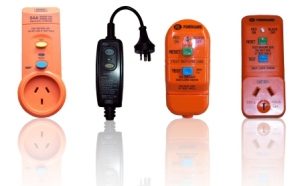
ARE YOU COMPLIANT?!
Cleanstar Residual Current Detector’s have progressed from being a safety precaution to a legal requirement*.
From the 1st of January 2013, new legal requirements in some states and territories for Residual Current Detectors (RCDs) will apply to workplaces where “plug in” electrical equipment is used (ie: vacuum cleaners, polishers, etc).
What is an RCD?
It is an electrical safety device designed to immediately switch off the supply of electricity when electricity leaking to earth is detected at harmful levels.
Why do you need an RCD when some appliances have no earth?
RCDs will also detect a current imbalance and legislation indicates that they must also be installed on appliances with no earth.
In what workplace operating environment should they be used?
Electrical Equipment which is exposed to operating conditions that are likely to result in damage to the equipment (or a reduction in its expected life span) including conditions that involve exposure to moisture, heat, vibration, mechanical damage, corrosive chemicals or dust
Electrical equipment which is moved between different locations in circumstances where damage to the equipment or to a flexible electricity supply cord is reasonably likely.
Electrical equipment which is frequently moved during its normal use
Cleanstar offer a full range of RCDs (see above picture) please contact our office for more information.
Click here to find out more.
Cleanstar Pty Ltd
59 Radford Road, RESERVOIR VIC 3073
p. (03) 9460 5655
e. sales@cleanstar.com.au
web. Cleanstar.com.au
Click here to find out more about the legal requirements.
*Currently legal requirements are in NSW, but it is anticipated other States will soon follow.
Disclaimer: Please note these facts are for general information only. Please contact your local government regulator for current legislation to see if they apply to you.

